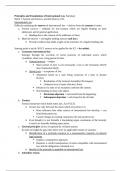Zusammenfassung
summary all materials for PRINCIPLES AND FOUNDATIONS OF INTERNATIONAL LAW
- Kurs
- Hochschule
summary all materials for PRINCIPLES AND FOUNDATIONS OF INTERNATIONAL LAW giving in the master's degree (LL.M) at the University of Amsterdam (UvA) International and European Law
[ Mehr anzeigen ]



